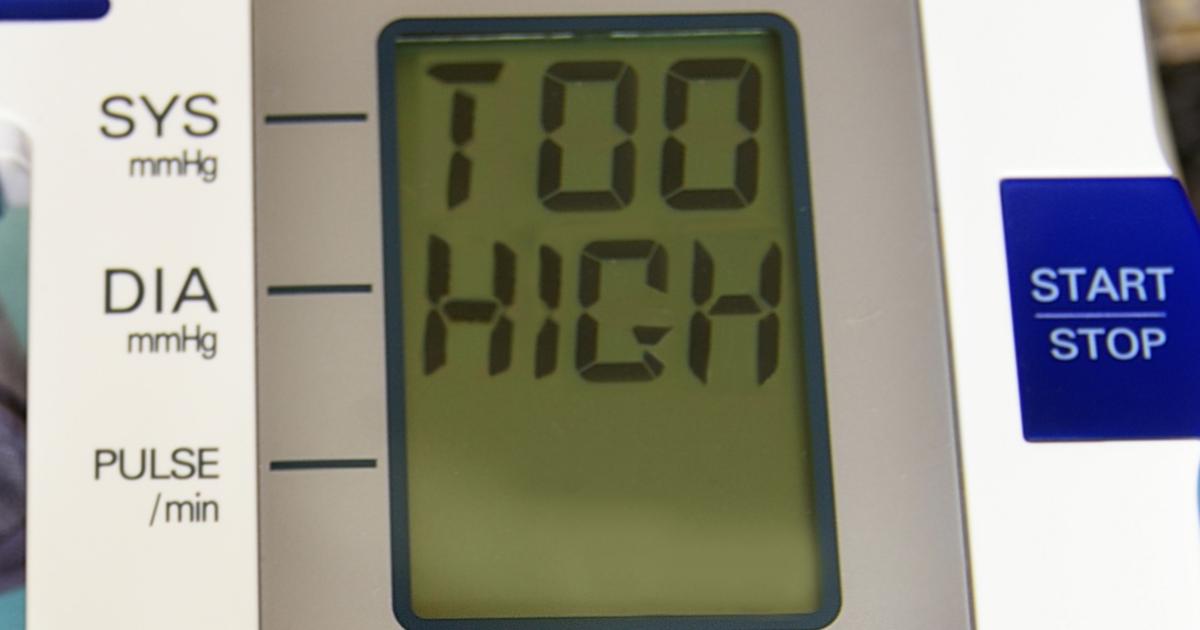Overview Of Phentermine
Phentermine is a medication prescribed on a short-term basis for only a few weeks. It is intended for use by obese patients, those with a body mass index of thirty or higher, who have not been able to lose weight with diet and exercise alone. First developed in the late 1950s, this medicine is the most commonly prescribed weight loss drug in the United States. Doctors will conduct a physical exam to determine if the patient has weight-related health issues that taking this medication can improve. They will check the patient's blood pressure, cholesterol, and blood glucose measurements. They may also run tests to check the patient's cardiovascular health.
Many patients who take phentermine as their weight loss medication are often asked to follow a doctor-approved weight loss diet. They will often have a specific exercise regimen for weight loss as well. This helps ensure that their weight loss treatment is balanced and healthy. It also ensures that they can stop taking phentermine for weight loss at the appropriate time. Of course, patients must first understand how this medication works.
Medication Class

The active ingredient in phentermine is phentermine hydrochloride. This ingredient is known as a sympathomimetic amine anorectic. The anorectic part of this medication refers to its ability to suppress an individual's appetite. Thus, many patients will hear phentermine classified as an appetite suppressant. The other portion of this medication class, sympathomimetic amine, means that this drug affects the central nervous system. Overall, this means that phentermine affects the part of an individual's brain that controls hunger. Thus, patients on this medication often feel full on less food.
Continue reading to learn more about this medication, how it works, and the forms that it comes in next.
How It Works

Phentermine works similarly to amphetamines, which suppress the patient's appetite and raise their heart rate and blood pressure. An increased heart rate makes the body use more energy and burn more calories. Additionally, the medication helps patients feel full for longer, improving weight loss.
Some patients take phentermine alone. Others may be prescribed a combination pill of phentermine and topiramate. The latter is a medication initially used to treat epilepsy. The addition of the topiramate makes food taste less appealing. This could enable patients to eat less than they usually would. While phentermine alone is only intended for short-term use, patients can take the combination pill for long periods. It is available in an extended-release tablet.
Get familiar with the uses and benefits linked to this medication next.
Uses And Benefits

Phentermine is approved for use as a weight loss aid. It helps patients reach a healthier weight and reduce their risk of weight-related complications. These complications include diabetes, high blood pressure, cardiovascular disease, and certain forms of cancer. Patients who lose weight with this medication typically see reductions in their blood pressure, blood glucose, and cholesterol as well.
Phentermine is sometimes considered for off-label use in the treatment of attention deficit hyperactivity disorder. As a stimulant, the medication promotes the release of norepinephrine. Doctors believe this mechanism could improve attention. Phentermine also affects dopamine levels in the brain. It is thought that this decreases impulsivity and hyperactivity.
Uncover the potential side effects next.
Potential Side Effects

Patients who take phentermine could experience a range of potential side effects. Some of the most frequently reported side effects include an elevated heart rate, a tingling or pricking sensation in the hands or feet, constipation, and dry mouth. Many individuals taking this medicine have experienced difficulty falling asleep or staying asleep. It is common to feel nervous while using the drug too. Headaches, dizziness, and itching may occur, and patients may develop diarrhea or stomach pain. Some individuals have noticed an unpleasant taste in the mouth during treatment with this medication. The patient's interest in sex may increase or decrease. Although rare, phentermine may cause serious side effects for some patients. For example, patients could start to have auditory or visual hallucinations. They may also experience severe changes in their mental state.
Chest pain could occur on this medication. Patients should let their doctor know immediately if they experience this symptom. Urgent medical care is necessary if side effects such as shortness of breath, pounding heartbeats, a fluttering sensation in the chest, or tremors occur. This medication can increase blood pressure. Patients could experience nosebleeds, blurry vision, anxiety, or a severe headache if their blood pressure rises dramatically. If any of these symptoms develop, the patient should seek emergency care.
Discover information on this medication and allergies next.
Phentermine And Allergies

An allergic reaction to phentermine is quite rare. However, some patients have had reactions to this medication. Thus, it is worth understanding the warning signs of a severe allergic reaction. These symptoms include significant dizziness, breathing problems, and a rash. During an allergic reaction, patients often deal with itching and swelling as well, particularly involving their tongue, face, and throat. Patients who experience any of these signs must call for emergency medical attention. They also need to call for emergency help for the previously discussed severe side effects, particularly if they suspect pulmonary hypertension or other heart and lung issues.
Learn about the precautions to remember on this medication next.
Precautions To Remember

Patients who have high blood pressure or cardiovascular disease should not take phentermine. This medication is also not appropriate for individuals with glaucoma or an overactive thyroid gland. Patients who are pregnant should not use this medicine because weight loss during pregnancy, even in overweight individuals, may be harmful to the unborn baby. This medication can pass into breast milk, and patients who are breastfeeding should not take it. Since phentermine may lead to dependency, patients with a history of substance use disorders should use an alternative weight loss medication instead.
Before phentermine is prescribed, patients should let their doctor know about any history of kidney disease, blood pressure issues, or heart valve disorders. This medication may not be safe for patients with these health concerns. Diabetes patients should ask their doctor about adjusting the dose of their diabetes medications during their treatment with phentermine.
Discover the potential medical interactions next.
Potential Medication Interactions

Phentermine could cause a potentially fatal lung disease known as pulmonary hypertension if it is taken along with other weight loss medicines. This includes other prescriptions, over-the-counter medicines, and herbal supplements designed as weight loss aids. Some of the most popular diet medications known to interact with phentermine are fenfluramine and dexfenfluramine. Patients should not take any other diet medications while taking phentermine to prevent interactions. They should also let their doctor know about all the medications they use.
Phentermine interacts with more than 150 drugs and is associated with forty-two potentially serious drug interactions. The medication has particularly strong interactions with antidepressants. Examples include fluoxetine, duloxetine, venlafaxine, and escitalopram. It is also known to interact with metformin, levothyroxine, and liraglutide. After having their doctor check their current medication list before prescribing phentermine, patients should ask their pharmacist to check for potential interactions before the medicine is dispensed.
Get the details on the common dosage recommendations for this medication next.
Common Dosage Recommendations

The dosage that a patient needs for phentermine varies depending on their specific situation as well as what will be effective. In other words, doctors prescribe the lowest effective dose for the shortest period necessary. As of 2016, patients have access to an eight-milligram pill of phentermine. According to regulations, patients can take this form up to three times daily.
Of course, there is also a combination pill with both phentermine and topiramate. This medication ranges in dosages. The range for phentermine is between 3.75 and fifteen milligrams, and the range for topiramate is between twenty-three and ninety-two milligrams. Patients are often put on the lowest dose for at least fourteen days, at which point their doctor can choose to increase their dose if needed. However, doctors must stop this medication if patients do not lose five percent of their weight after being on a high dose for twelve weeks.
Continue reading to learn about some common medication alternatives next.
Common Medication Alternatives

As mentioned, phentermine can be prescribed 'off-label' to treat attention deficit hyperactivity disorder. Most of the time, however, it is not the medication that doctors will prescribe. There are many other medications used to treat this disorder without being used 'off-label.' The two most common are amphetamine (Adderall) and methylphenidate.
Of course, there are quite a few medication alternatives to phentermine for weight loss. Some of the common ones that doctors will prescribe instead are lorcaserin, naltrexone-bupropion, and orlistat. These medications work for weight loss in various ways. Orlistat, for instance, blocks the enzyme that breaks down fat so it can be excreted through bowel movements instead. Other weight loss medications work on the brain to suppress appetite, hunger, and cravings. In all cases, patients must follow their doctor's directions when taking medication for weight loss, including when to stop.
Get some advice for taking phentermine next.
Advice For Taking It

Phentermine needs to be taken around the same time each day. Patients who take it three times per day should take each dose roughly thirty minutes before breakfast, lunch, and dinner. Individuals who take it once a day should take their dose either before breakfast or one to two hours after breakfast. If the patient forgets to take a dose, they should skip the dose for that day if it is late in the afternoon or evening. Taking two doses at one time could cause serious side effects, and it may be fatal. In addition, taking the last dose too late in the day increases the risk of insomnia and other side effects related to sleep.
